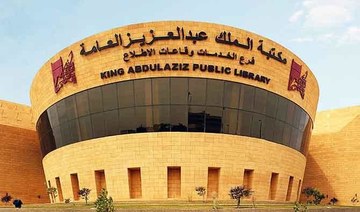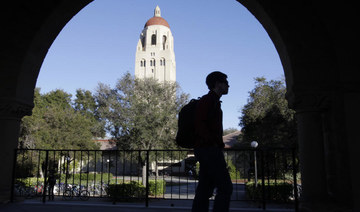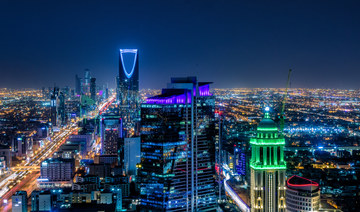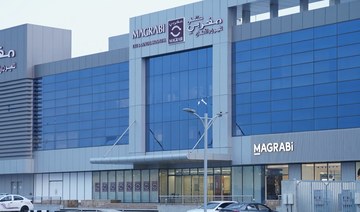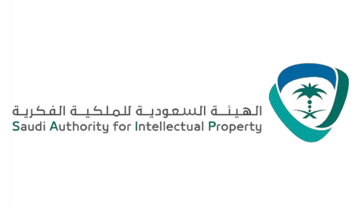WASHINGTON: President Donald Trump turned up the pressure on China on Sunday, threatening to hike tariffs on $200 billion worth of Chinese goods.
Trump’s comments, delivered on Twitter, came as a Chinese delegation was scheduled to resume talks in Washington on Wednesday aimed at resolving a trade war that has shaken financial markets and cast gloom over the world economy.
Trump turned up the heat by saying he would raise import taxes on $200 billion in Chinese products to 25% from 10% on Friday.
The Wall Street Journal, citing unidentified sources, said China’s government was considering canceling this week’s talks. Beijing has responded to previous US threats by saying it wouldn’t negotiate under pressure.
Stock markets fell on the news. The future for the Dow Jones Industrial Average lost 1.5 percent while Tokyo’s Nikkei 225 retreated 0.2 percent.
Trump had twice pushed back deadlines — in January and March — to raise the tariffs in a bid to buy more time for a negotiated settlement. But on Sunday, Trump, who has called himself a “tariff man,” said he’s losing patience. “The Trade Deal with China continues, but too slowly, as they attempt to renegotiate. No!” Trump tweeted.
In his tweets, Trump also threatened to slap tariffs on another $325 billion in Chinese imports, covering everything China ships annually to the United States.
The two countries are locked in a high-stakes dispute over China’s push to establish itself as a technological super power. The US charges that China is resorting to predatory tactics — including cybertheft and forcing foreign companies to hand over technology — in a drive to establish Chinese companies as world leaders in advanced industries such as robotics and electric vehicles.
The administration has repeatedly suggested that the negotiators are making progress. A month ago, Trump said that the two countries were “rounding the turn” and predicted that “something monumental” would be achieved in the next few weeks.
But last week, Treasury Secretary Steven Mnuchin seemed to temper expectations, suggesting that Washington was willing to “move on” if it can’t get the deal it wants.
A substantive deal would require China to rethink the way it pursues its economic ambitions, abandoning or scaling back subsidies to its companies, easing up on the pressure for foreign companies to share trade secrets, and giving them more access to the Chinese market.
Philip Levy, senior fellow at the Chicago Council on Global Affairs and a White House economist under President George W. Bush, said the talks are too complicated for Trump’s high-pressure tactics to work. “The president treats this like we’re haggling over the price of a used car,” Levy said.
Trump has made a priority of shaking up American trade policy.
As a candidate for the presidency, Trump raged repeatedly about alleged Chinese perfidy — so much so that a video mashup of him spitting out the word “China” went viral and collected more than 15 million views on Youtube.com.
Trump charged that previous administrations, gullible and weak, had let China get away with abusive trade practices, accepting empty promises from Beijing and allowing the US-China economic relationship to grow ever more lopsided. As evidence, he pointed to America’s vast US trade deficit with China — $379 billion last year, by far the biggest with any country in the world.
Once he took office, Trump’s relationship with his Chinese counterpart, Xi Jinping, seemed to get off to a good start. The two men shared chocolate cake and amiable conversation at Trump’s resort in Mar-a-Lago, Florida, in April 2017. A few weeks later, China agreed to open its market US beef, cooked chicken, and natural gas in what Commerce Secretary Wilbur Ross called a “herculean accomplishment.”
The romance faded. In March 2018, the Office of the US Trade Representative issued a report accusing China of using predatory tactics to strengthen its tech companies.
Last July, the Trump administration gradually began slapping import taxes on Chinese goods to pressure Beijing into changing its policies. It now has imposed 10% tariffs on $200 billion in Chinese imports and 25% tariffs on another $50 billion. The Chinese have retaliated by targeting $110 billion in US imports.
The fight between the world’s two biggest economies is raising worries about global economic growth. The International Monetary Fund, the World Bank, and others have downgraded their forecasts for the world economy, saying the US-China standoff is reducing world trade and creating uncertainty for companies trying to decide where to buy supplies, build factories, and make investments.
Trump has portrayed his tariffs as a moneymaker for the United States and a benefit to the US economy.
But a March study by economists from the Federal Reserve Bank of New York, Columbia University, and Princeton University found that the burden of Trump’s tariffs — including taxes on steel, aluminum, solar panels, and Chinese imports — falls entirely on US consumers and businesses who buy imported products. By the end of last year, the study found, they were paying $3 billion a month in higher taxes and absorbing $1.4 billion a month in lost efficiency.
Nonetheless, the overall US economy has remained healthy. On Friday, the government reported that the US unemployment rate had fallen to the lowest level in half a century.
The prospect of higher tariffs and heightened tensions could alarm investors when markets open Monday. “When the president puts his foot down, it makes the market go down,” Chris Rupkey, chief financial economist at MUFG Union Bank, wrote in a research note Sunday. “Tariff man is back just in time to make the stock market dive, dive, dive.”
Trump threatens to hike tariffs on $200B of Chinese imports
Trump threatens to hike tariffs on $200B of Chinese imports

- Last July, the Trump administration gradually began slapping import taxes on Chinese goods to pressure Beijing into changing its policies
ACWA Power, IRENA join hands to accelerate global renewable energy transition
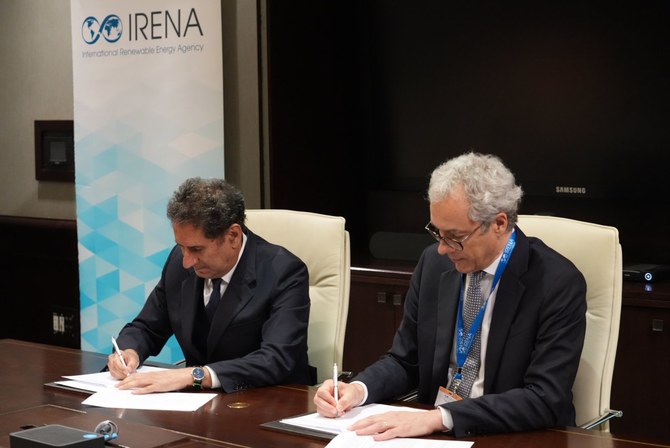
RIYADH: In a bid to add impetus to the adoption of clean energy sources worldwide, Saudi utility firm ACWA Power has signed a deal with the International Renewable Energy Agency, said a press release issued on Thursday.
The Saudi-listed firm said that the partnership aligns with its mission to provide sustainable energy solutions and seeks to accelerate the adoption and sustainable use of renewable energy across the globe.
ACWA Power will work closely with IRENA to share crucial insights on infrastructure investment in renewable energy, green hydrogen advancement, solar energy, smart grids, and the intersection of energy and water, the press release said.
The Saudi-listed company also announced its participation in various IRENA initiatives, such as Green Hydrogen, Collaborative Frameworks, Project Facilitation, the Alliance for Industry Decarbonization, the Utilities for Net-Zero Alliance, and the Coalition for Action.
As per the deal, ACWA Power and IRENA will investigate avenues to mobilize finance and investment for renewable energy projects, while also supporting infrastructure for the development, storage, distribution, transmission, and consumption of renewables.
Moreover, collaborative workshops and seminars will be arranged to exchange best practices, enhance skills, and promote awareness of the energy transition among youth, professionals, and the public using IRENA’s platforms and programs.
ACWA Power CEO Marco Arcelli said the partnership with IRENA marks a significant milestone in his company’s journey toward a sustainable energy future.
“By combining our strengths and resources, we are prepared to drive meaningful change and accelerate the transition to renewable energy on a global scale,” he said.
The CEO added that through collaborative partnerships and innovative solutions, ACWA Power remains committed to advancing the widespread adoption and sustainable use of renewable energy, shaping a brighter and more sustainable future for generations to come.
IRENA Director General Francesco La Camera commented: “We have less than a decade left to secure a fighting chance for a 1.5°C world. Accelerating the renewable-based energy transition needs industry leaders and this deal between IRENA and ACWA Power stands for the growing commitment of global industry to act on decarbonization.”
He added: “We need to act together to accelerate the sustainable use of renewables and green hydrogen across the globe.”
Closing Bell: TASI ends the week in green with trading turnover at $2.18bn
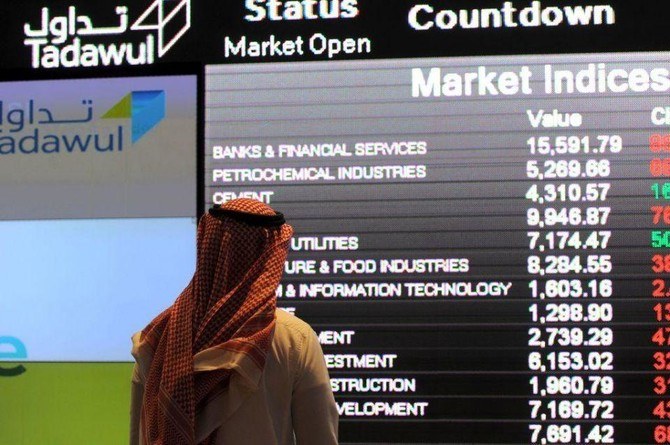
RIYADH: Saudi Arabia’s Tadawul All Share Index rose on Thursday, gaining 36.37 points, or 0.29 percent, to close at 12,502.35.
The total trading turnover of the benchmark index was SR8.19 billion ($2.18 billion) as 130 stocks advanced, while 90 retreated.
The MSCI Tadawul Index also increased by 5.98 points, or 0.38 percent, to close at 1,575.11.
The Kingdom’s parallel market, Nomu, followed suit and gained 305.77 points, or 1.16 percent, to close at 26,418.75. This comes as 33 stocks advanced, while as many as 27 retreated.
The best-performing stock on the main index was Saudi Arabian Amiantit Co., as its share price rose by 7.69 percent to SR30.80.
Allianz Saudi Fransi Cooperative Insurance Co. also performed well as its share price saw a 6.79 percent increase to close at SR20.16.
This comes as Abu Dhabi National Insurance Co. completed a strategic acquisition of a 51 percent stake in Allianz, according to the Emirates News Agency, WAM.
ADNIC Chairman Mohamed Al- Nahyan told WAM: “The connection between the UAE and Saudi Arabia is deep, mutually beneficial and ever-growing. At ADNIC, we see Saudi Arabia as a high-potential market which perfectly aligns with our overall growth strategy, and we are looking forward to unlocking new possibilities for growth and success.”
Other top performers include United Cooperative Assurance Co. and Saudi Pharmaceutical Industries and Medical Appliances Corp. whose share prices soared by 5.68 percent and 5.51 percent, to stand at SR11.16 and SR14.16 respectively.
The worst performer was Alkhaleej Training and Education Co., whose share price dropped by 5.27 percent to SR33.25.
On the announcements front, Saudi mining giant and Public Investment Fund subsidiary, Saudi Arabian Mining Co., known as Ma’aden, announced the launch of single stock options in a statement on Tadawul.
SSOs will enable local and international investors to effectively hedge and manage portfolio risks as well as diversify products available for trading in the market.
Saudi minister calls for ‘decisive financial policies’ to counter global economic uncertainties
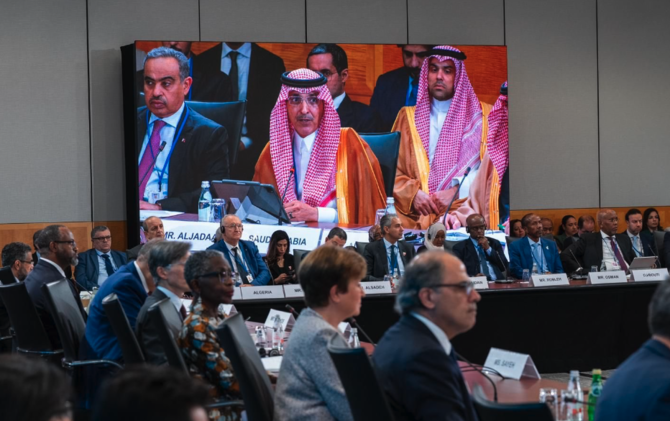
RIYADH: Saudi Arabia’s finance minister on Thursday stressed the need for “decisive financial policies” across the world to navigate through uncertain economic conditions.
Speaking during the Spring Meetings 2024 of the IMF held in Washington, D.C, Mohammed Al-Jadaan noted that such a decisive approach would bolster resilience and sustainability amid the ongoing uncertainties.
He was attending a meeting of finance ministers and governors of the Middle East, North Africa, Afghanistan and Pakistan region with IMF Managing Director Kristalina Georgieva.
“I also participated in the Global Sovereign Debt Roundtable, where I highlighted the importance of enhancing Comparability of Treatment by establishing a clear and fair framework that ensures equitable treatment among all creditors,” Al-Jadaan said in a post on X.
Additionally, the minister participated in the second G20 finance ministers and central bank governors’ meeting held under the Brazilian presidency in Sao Paulo. He emphasized that effective climate action required a holistic approach.
He said that can be achieved “by integrating diverse sectors acknowledging the diversity of solutions to address climate challenges, including using innovative technologies to manage emissions.”
Al-Jadaan also met with Jose Vinals, chairman of Standard Chartered Bank, to discuss the regional and global economic outlook.
He also met with Spanish Minister of Economy, Trade, and Business, Carlos Cuerpo to discuss ways to enhance relations between the two countries.
Moreover, Al-Jadaan held talks with Jean Lemierre, chairman of Bank BNP Paribas, the global head of Official Institutions Coverage, Laurent Leveque, and the head of Debt Capital Markets, Alexis Taffin.
They discussed progress made in Saudi Arabia, as well as issues related to attracting investment and alternative financing.
Magrabi opens new complex in Makkah
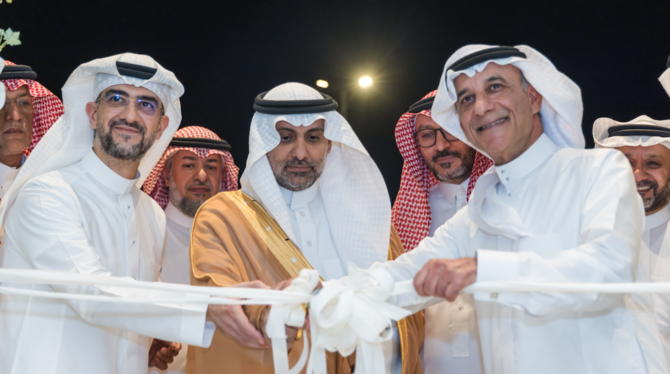
RIYADH: With a new branch in Makkah, Magrabi Hospitals and Centers are expanding to more Saudi cities to meet the growing demand for specialized ophthalmological and dentistry care.
Minister of Health Fahad Al-Jalajel inaugurated the medical complex and one-day surgery center in the holy city, accompanied by Magrabi Hospitals and Centers CEO Mutasim Alireza, the Group’s Deputy CEO and Cheif Operating Officer Abdulrahman Barzangi, and several officials and dignitaries.
Al-Jalajel underscored that the opening reflects the Kingdom’s commitment to enhancing the quality of its healthcare services and transitioning toward a more comprehensive and integrated medical system.
He further stated that this initiative is a vital component of the Health Transformation Program, a foundational aspect of Saudi Vision 2030, which has achieved significant milestones and advancements in the medical sector under the leadership of Crown Prince Mohammed bin Salman.
Following the official inauguration, the minister toured the complex’s facilities, noting its significance as a notable project and a valuable contribution to the Kingdom.
Alireza said: “This specialized medical complex underscores our commitment to being at the forefront of healthcare for ophthalmology and dental services and continuing our mission to offer specialized medical services that meet community needs with the utmost quality and safety.”
In March, Magrabi Ophthalmology and Dentistry Hospital Dammam officially opened its doors in Al-Shaala, marking an achievement for medical care in Saudi Arabia.
The Magrabi Dammam health facility is the largest specialized center in the region and provides sub-specialized services, meeting the highest quality standards and leveraging the latest global technologies.
UAE records 64% surge in trademark registrations
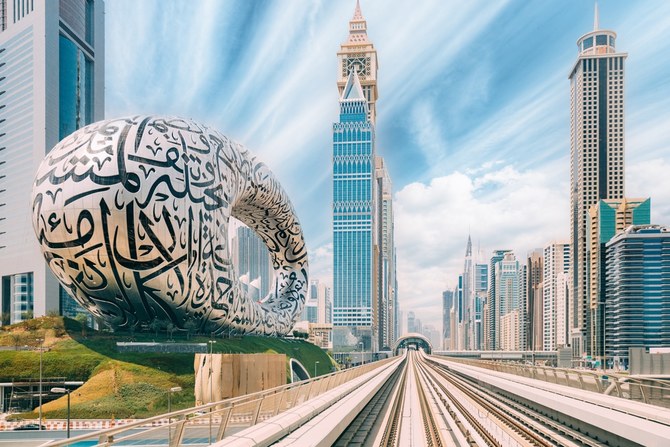
RIYADH: The UAE recorded an annual 64 percent surge in trademark registrations, amounting to 4,610 in the first quarter of 2024, official data showed.
The figures, released by the nation’s Ministry of Economy, reveal the notable increase from 2,813 signups in the same period of 2023.
March emerged as a particularly prolific period, with 2,018 new brands reported.
The trademarks registered during this time span a wide range of key sectors, including smart technology, transportation, food and beverage and pharmaceuticals as well as medical devices, finance, real estate, and more.
The preceding months of January and February collectively accounted for 2,592 trademarks, further highlighting sustained growth and momentum in registrations.
As the country continues to position itself as a global business hub, trademark registrations serve as a crucial indicator of economic vitality and innovation-driven growth.
In a release on X, the ministry noted on April 17 that it has: “Worked on developing the trademark registration service, using the latest technologies and innovative solutions to achieve higher efficiency and better interaction with clients.”
The UAE’s adherence to international treaties and agreements further strengthens its trademark registration regime.
By adhering to agreements like the Paris Convention for the Protection of Industrial Property and the Agreement on Trade-Related Aspects of Intellectual Property Rights or TRIPS, the UAE facilitates international trademark registration and enforcement, empowering businesses to broaden their operations across borders.
The nation has further established mechanisms for enforcing trademark rights and combating infringement.
These include civil remedies, such as damages, injunctions, and seizure of infringing goods, as well as criminal penalties for trademark counterfeiting and piracy.



